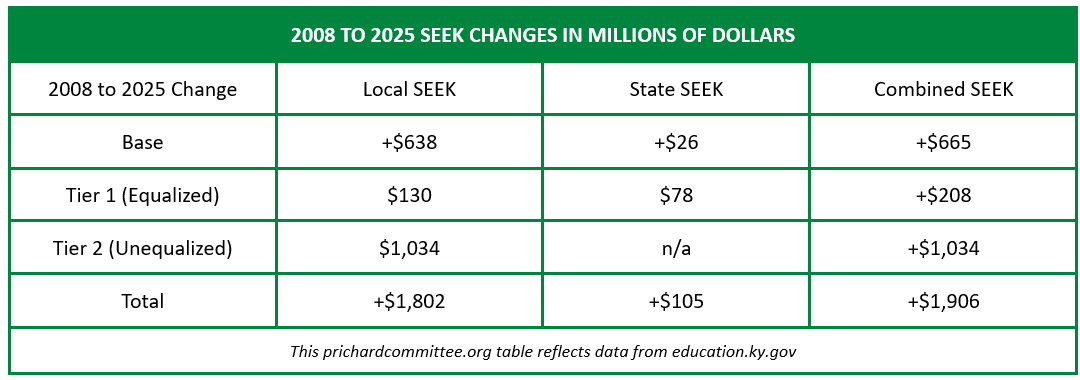A high school diploma should be evidence that a student is ready to succeed after high school. Unfortunately, too many students today graduate, diploma in-hand, without having mastered the knowledge and skills required to be successful in college, career, and life. Ensuring Kentucky’s high school graduates are prepared for success in postsecondary, master content knowledge, and acquire skills such as creativity, communication, problem solving, and team work will require:
- High expectations through rigorous course work and adequate supports
- Greater access to early postsecondary opportunities, including relevant career pathways.
- A highly-qualified teacher in every classroom, every year.
- Innovative alternative systems for earning high school credits.
First and foremost, jobs. In Kentucky, 62% of jobs by 2020 and a majority of those paying a family-sustaining wage will require some level of postsecondary education. Those holding a bachelor’s degree in the Commonwealth earn 51% more than those with just a high school diploma. Research clearly documents other positive benefits of more education including: lower unemployment, less chronic disease, less dependence on public assistance, and greater rates of civic participation. A meaningful high school diploma is the gateway to postsecondary success and these benefits. But, while nearly 90 percent of Kentucky high school students graduate in four years, far fewer are meeting college and/or career readiness standards, putting them at a disadvantage for future success. For example, 67% of those college and/or career ready transition to college, while less than 30% of those not ready do. Less than 50% of high school students demonstrate proficiency on end-of-course exams in Math and Science, and just over 50% demonstrate proficiency in English and History.
State law requires the Kentucky Board of Education (KBE) to set minimum high school graduation requirements. Currently, students must earn a total of at least twenty-two credits to graduate. This includes credits aligned to the content standards in the Kentucky core academic standards, as well as additional electives aligned to the student’s individual learning plan. Kentucky’s school accountability system since 2011 has included measures of student college and/or career readiness for high school accountability. Kentucky’s new accountability system builds on this measure with multiple ways for a student to show evidence of “transition readiness” in both academic and career domains.
To review KDE’s side-by-side comparison of current and proposed changes on minimum graduation requirements, click here.
There are significant concerns about whether Kentucky is delivering on the promise of future success to all high school students. Too many are graduating with a diploma, but without the knowledge and skills necessary to succeed in college and career.
In response to these concerns, the Kentucky Department of Education (KDE) is developing revisions to Kentucky’s minimum high school graduation requirements. In spring 2018, KDE hosted town halls, roundtables with business leaders and online surveys to gather public feedback on the competencies needed for high school graduates to successfully transition.
The state Board of Education had a first reading of the proposed regulation on August 2, 2018 and is scheduled to have a second reading at their October 2018 meeting. These proposed changes are summarized in the infographic above. The public will have an opportunity to comment on any changes to the regulation during late summer or fall of 2018.
As Kentucky’s citizen advocacy group for excellence and equity in education, we are collecting public input throughout the process. We will share feedback with the Kentucky Department of Education and Kentucky Board of Education as they finalize policy decisions over the coming weeks. Tweet comments using the hashtag #KYdiploma on Twitter, comment on our Facebook page, or email us feedback directly.













